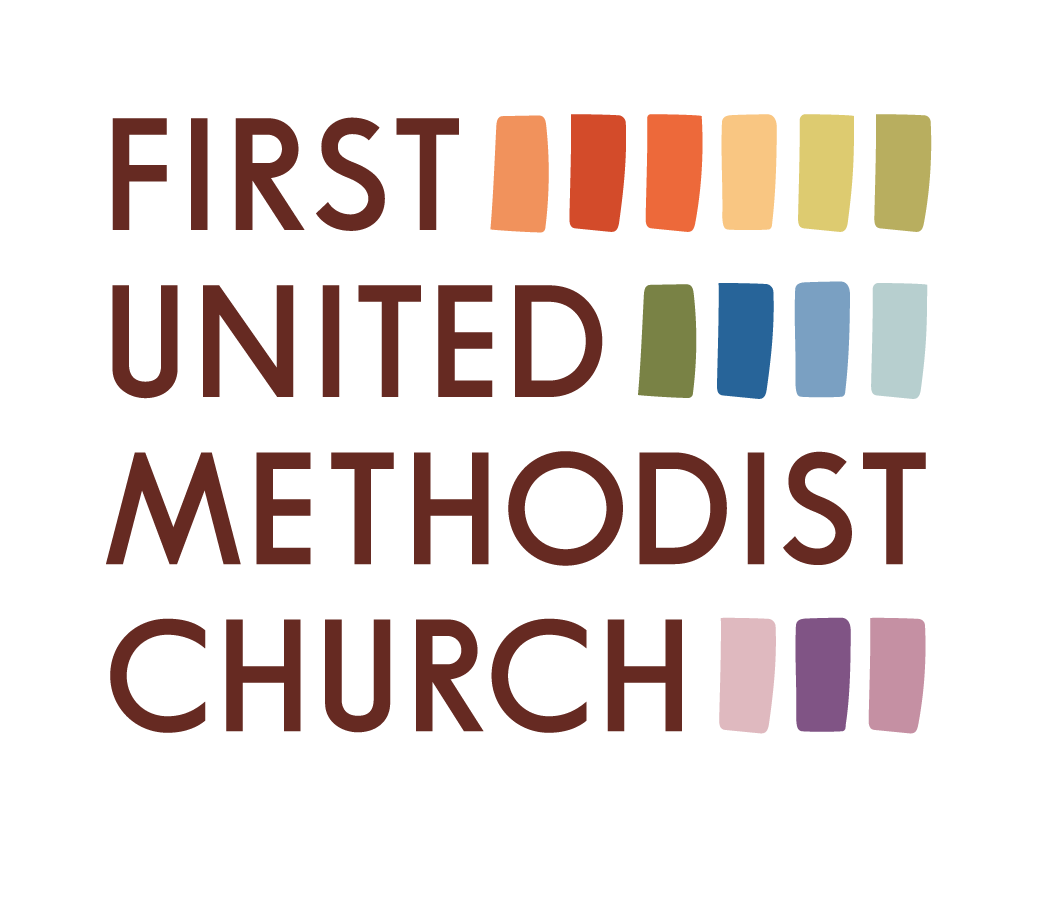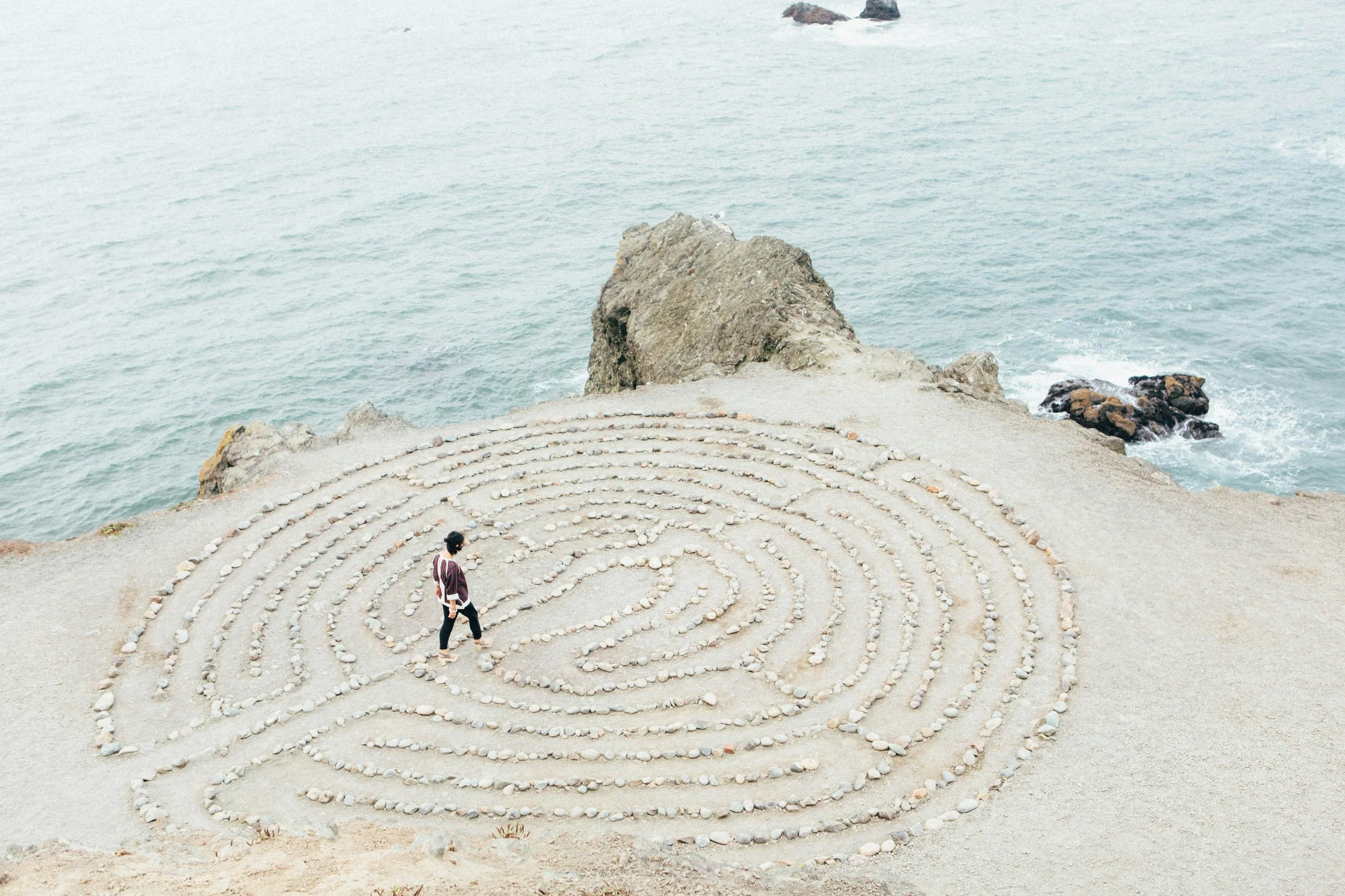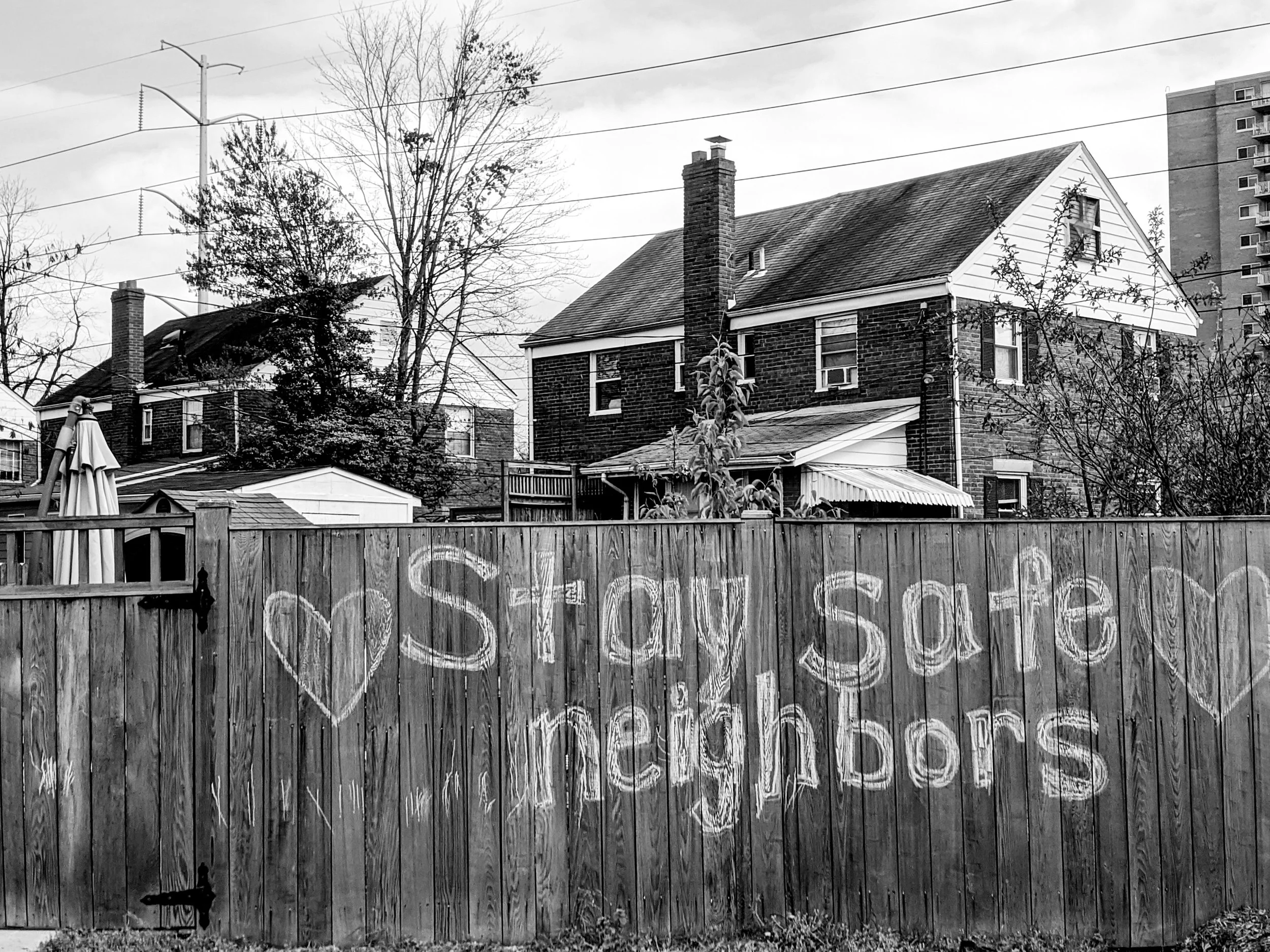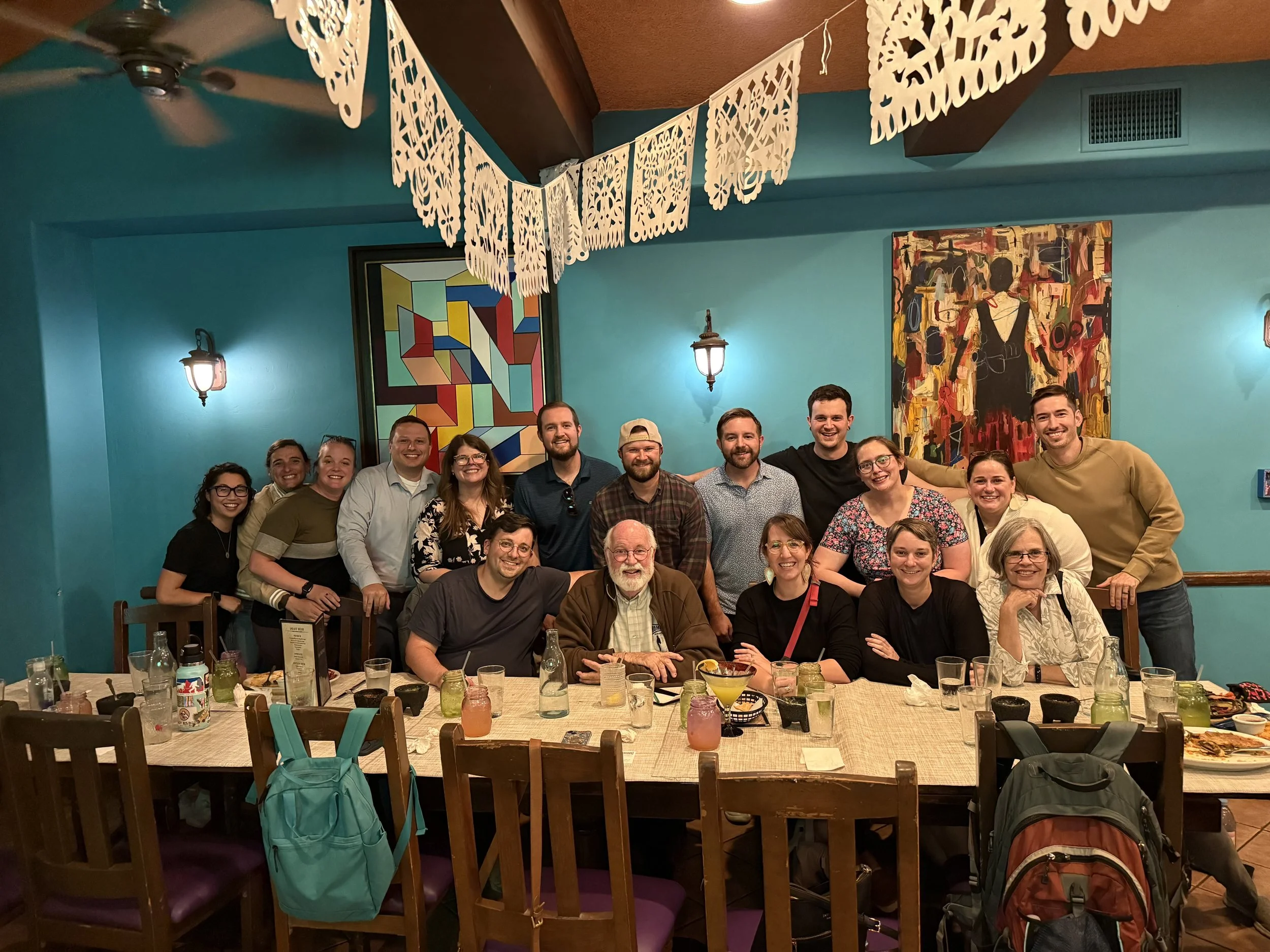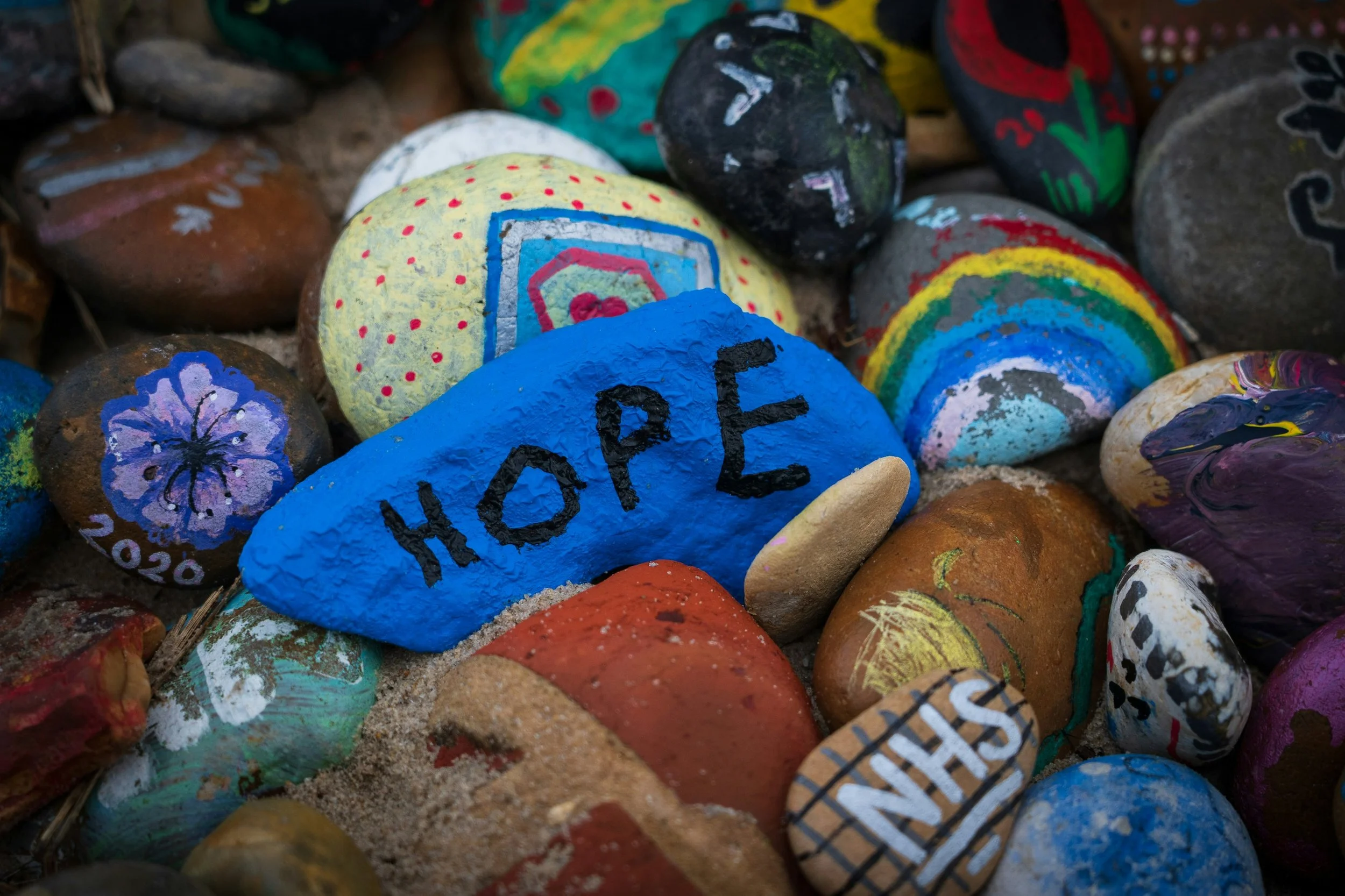News at First Church
What a year it’s been!
What a year it’s been!
Oh wait.
It’s January 22.
And friends, I am exhausted.
I am energized by the ministry I am doing, excited by the possibilities of collaboration that have arisen, and leaning into places where I might be more fully myself in this coming year.
And. I am tired.
Go and Do Likewise
My daughter will be 5 in April. She recently started preschool here in Portland. We drive the seven minutes every day from our home to the school. On the way there she asks lots of questions. Like, lots of questions.
Where Does it Hurt?
Where does it hurt?
Everywhere. Everywhere. Everywhere. It hurts in our hearts. In our gut. In our very bones.
It hurts everywhere.
Even as we hold so tightly on to the hope of the light of Christ in one hand, the grief we have collected in the other hand is heavy, sticking, and exhausting.
And the Creek Don’t Rise
“God willing and the creek don’t rise!” we used to say. This meant we would move forward as planned unless some extreme event prevented normal function. Houston’s many creeks were regularly one heavy rain away from flooding roads and neighborhoods, so it always felt like a relevant saying. We sometimes used it as if to say, “well, here’s hoping!” as we waited for that other disruptive shoe to drop.
Each morning, I check the weather and the news. Between the two, it seems that the creek is indeed rising!
Devon, Our Brother
Jesus, our brother, kind and good,
Was humbly born in a stable rude,
And the friendly beasts around him stood;
Jesus, our brother, kind and good.
When the second week of Advent comes around each year and we speak once more of John the Baptist’s admonition to prepare the way, I remember our neighbor Devon.
All Our Voices, All Our Visions
Building bridges between our divisions,
I reach out to you, will you reach out to me?
With all of our voices and all of our visions,
friends, we could make such sweet harmony.
175 voices sang in the round: building bridges – I reach out to you – between our divisions – will you reach out to me? Huddled between the bike path and decommissioned railroad tracks, our interfaith group stood under the shadow of the Immigration and Customs Enforcement building on Wednesday afternoon. The building was fortified with plywood covering its windows. Those gathered were fortified with a guitar, speaker, microphone, and song lyrics.
When the “Thanks” is Hard to Give
As a Christian people, we give thanks all the time for the sharing of Creation’s abundance. This week, the rest of the country joins us!
Despite being pros at gratitude, in some seasons the “thanks” can be hard to give. Sometimes it is simply that we have gotten ourselves so wound up in timetables, tasks, and travel details that there is little possibility of unwinding enough to give that exhale of gratitude. Other times it’s not the frenzy at all, but instead the slow loneliness that has crept into our lives like a fog obscuring our gratitude. Still others it’s the weight of the world that feels like it’s gone past resting on anyone’s shoulders and instead has become heavy weights around our ankles, making the pivot toward gratitude take more effort than ever.
We Know the Love of God
“As trans people, we know the love of God. We feel it in our bones, in the very skin that lines our bodies, in the very nature of who we are.”
For over 25 years, this day has marked the Trans Day of Remembrance (TDOR), a day in which we honor our trans siblings who have died by anti-transgender violence. They did not sign up to fight, did not commit themselves to any war, but were a casualty of it anyway.
This evening at 6pm we will host the 2025 Trans Day of Remembrance Interfaith Vigil, where our Sanctuary will be moved by the holy ritual of remembering and honoring.
No Exceptions
“Everyone is good- no exceptions. We belong to each other- no exceptions.”
We were at Casa Fina in the Boyle Heights neighborhood of Los Angeles, hanging on to every pearl of wisdom opened to us by Father Gregory Boyle (called Father G, or simply “G” for short). We’d reached the end of a 5-year learning cohort and sought to learn from those like Father G in our last 10-day gathering that concluded today.
Change is in the air.
The leaves are turning. The leaves are falling. Pumpkin spice is in all of the coffee shops and bakeries. Sweater season is in full swing. The fruits and vegetables have ripened and been harvested and put away for the winter. The constitutional amendments have been ratified.
It is a time for us to tend to the matters at hand and lean into the cozy feeling of belonging. It’s one of the underlying values we hold here at First Church. When community, justice, worship, inclusion, and service come together, at their best, we create belonging for all of God’s children. What a beautiful thing!
SNAP and the Saints
In August, I shared about the experience of running into my Grandma Luz while volunteering at the foodbank. She’s on my mind again as we expect two things this weekend: the celebration of All Saints Sunday and the lapse of SNAP benefits.
When Life is Different
We continue to search for the right Director of Children, Youth, and Family Ministries to partner with First Church. We have hope for a great fit amongst our current candidates and look forward to updating everyone as soon as we are able! In the meantime, Pastor Rachel and I have been coordinating our family discipleship with the support of about 20 incredible volunteers.
We have gotten to share time with our young folks each Sunday morning and night, pondering trust, relationships, death, and how many kinds of UNO we have collectively played (there are apparently 700+ UNO versions and spinoffs). Reaching back to my Youth Director and intergenerational discipleship era has been a joy and a stretch!
Tales of the Steinway: How the piano that Bernstein played landed at First Church - a dedication concert jam
Join First Church Friends of Music as it presents a special concert that spans across the musical spectrum to dedicate the Sanctuary’s Steinway piano on Saturday, November 8, 2 pm. The concert is a free event as a gift to the entire community and features three luminary pianists taking the instrument to its limits with vastly different musical styles.
Another Week, Another Crowd of Clergy
As United Methodist clergy in full connection, Pastor Rachel is ordained into the Order of the Deacon and I am ordained into the Order of the Elder. There is a whole lot behind these Very Official Words, but practically they mean that Pastor Rachel and I are connected to our fellow clergy by covenant. Not just that we share a profession or serve in the same area or report to the same adjudicatory bodies, but a covenant of call, identity, and accountability.
Help Families Transition into Shelter—Join FUMC's Turnover Team
FUMC's Land and Housing Circle is forming a Turnover Team to support Path Home’s urgent shelter needs by helping prepare rooms for families moving in on short notice.
Too Good Not to Share
When was the last time you heard a story that was just too good not to share?
There are plenty of stories that are too incredulous, sorrowful, or angering not to share, but I have in mind the ones that are chock full of good.
Maybe it was in a newspaper that you clipped for a friend, or a post too perfect to keep to yourself. My household often swaps stories about urban issues, wider church happenings, and household cats.
Book Review: Custodians of Wonder
Elliot Stein is a reporter with the BBC who hosted a feature that ran for several episodes describing rapidly disappearing and obscure skills, the people who are the last in a long line of artisans who attained those skills, what their loss will mean.
Hope Anyway
Some days, we put on our blinders. Other times we are blinded by the grief and gravity of the world’s injustices. But occasionally, when our efforts align, we see the reality around us and the hope that exists anyway.
For me, this week is one of the latter. Even as we are focusing on the violence against Gazans, the Sumud Flotilla seeking to provide humanitarian aid, and the National Guard being mobilized in our own city, there has also been hope! I want to share some of those stories of hope with you, as well as practical reminders for how you can be hope for others in this moment.
The Gift of a Bonus Day
Wednesday afternoon I walked down the road to the Freddy’s pharmacy and rolled up my sleeve to be vaccinated. Contracting COVID has become an unfortunate annual tradition for me since we left lockdown. Fortunately, each year’s booster has kept my illness manageable.
Book Review: Why Religion Went Obsolete - The Demise of Traditional Faith in America
A new book, Why Religion Went Obsolete: The Demise of Traditional Faith in America by Christian Smith, has recently been added to the library collection and is ready for checkout! It is also currently being discussed by the Christianity in a Changing World class on Sunday mornings. Read on for a review by First Church member Phyllis Leonard.
